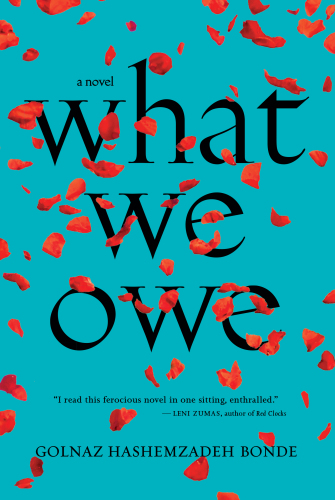
What We Owe
کتاب های مرتبط
- اطلاعات
- نقد و بررسی
- دیدگاه کاربران
نقد و بررسی

August 15, 2018
Told she has six months to live, an Iranian refugee living in Sweden rages against her inevitable decline--and wrestles with the choices of her past--in Hashemzadeh Bonde's spare and devastating novel, her first to be published in the U.S.At 50, Nahid is unceremoniously diagnosed with terminal cancer. She knows death: A former Marxist revolutionary who fled Iran for Sweden, she has seen it. Now that it is upon her, she ought to be prepared. "I've always carried my death with me," she announces. "Our time was always borrowed. We weren't supposed to be alive. We should have died in the revolution." But the reality of the diagnosis terrifies her. "What do you do when they tell you you're dying?" she wonders, caustically. What follows is less a plot than a reckoning: As her health declines, she recalls her childhood in Iran, the early excitement of the revolution followed by the brutality of the violence. She reflects back on her marriage and her early years in Sweden, poisoned by the pain she and her husband shared. And in the present, she considers her daughter, Aram, raised in so-called freedom, now an adult with a doting Swedish boyfriend. She loves Aram more than anyone, but her anger makes her cruel. "You have no mother," she tells Aram, shortly after diagnosis. "You have nobody. You're an orphan." Nahid is capable of betrayal; she learned that during the revolution. Now that she is dying, she debates the value of her choices: "I wonder now what's worth more," she says. "Freedom and democracy. Or people who love you. People who will take care of your children when you die." Translated--gorgeously and simply--by Wessel, Nahid's sentences are short and thrillingly brutal, and the result is exhilarating. Hashemzadeh Bonde, unafraid of ugliness and seemingly unconcerned with likability, has produced a startling meditation on death, national identity, and motherhood.Always arresting, never sentimental; gut-wrenching, though not without hope.
COPYRIGHT(2018) Kirkus Reviews, ALL RIGHTS RESERVED.

Starred review from September 1, 2018
In the story of Nahid from her days as a young revolutionary in Iran to becoming a refugee in Sweden, Bonde explores a tumult of emotions that globalize this distinctive experience. The unapologetic acknowledgment of Nahid's anger feels authentic, and the intensity of her character is magnetic and fully captures the reader's attention. As Nahid, now 50, comes to terms with her cancer diagnosis, she examines her relationship with her lover, Masood, and her daughter, Aram, and revisits the path that has molded her. There's a lot of hurt and anger over the cards life has dealt her, but there is also resilience?though there's nothing remotely simple or naive in Nahid's fierce will to live as she navigates the forced journey from Iran to Sweden. Bonde demonstrates great deftness in her depiction of the turns of events both during Iran's revolution and in the struggles the refugee family faces in Sweden, but she absolutely shines in her remarkable characterizations of Nahid, Aram, and Masood. Those who turn to books to look beyond their immediate lived reality should consider this novel a must-read.(Reprinted with permission of Booklist, copyright 2018, American Library Association.)

























دیدگاه کاربران